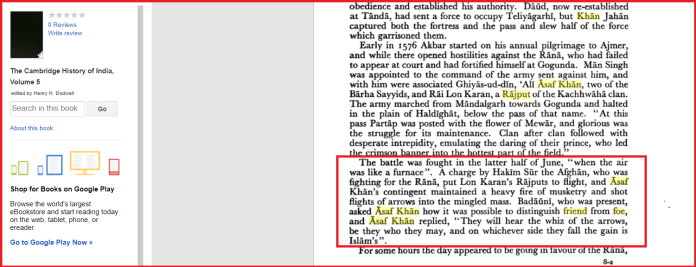Today, on the occasion of Maharana Pratap Jayanti, let me tell you a story. We all know about the Maharana’s legendary battle in 1576 against Mughal forces on the fields of Halidghati, a small village located near Udaipur in present-day Rajasthan.
This story may or may not have parallels with life today. You be the judge of that. I’ll just go ahead and tell the story. It’s really short anyway.
At the Battle of Haldighati, the Mughal forces were commanded by Raja Man Singh. As your middle school textbook would definitely have highlighted, the secular-minded emperor Akbar asked a Hindu nobleman to lead the charge against the Maharana.
However, your middle school textbook might have been slightly less forthcoming about one Asaf Khan. For the all important battle, Akbar had also appointed a “joint commander.” That was Asaf Khan, one of Akbar’s trusted governors.
No harm in that. So far, so good. Everything going well, as per Ganga Jamuni Tehzeeb.
But the Mughal forces had a problem. There were many Rajput soldiers fighting on the Mughal side as well. In the heat of battle, how would they tell friend from foe? What if they ended up fighting people on their own side?
This question was posed by Badauni to Asaf Khan. I’m sure you have heard of the great Badauni. Your middle school history textbook must have emphasized how he translated the Ramayana and Mahabharata to Persian. More Ganga Jamuni Tehzeeb.
Okay, so what did Asaf Khan say in reply to Badauni’s question? Let me quote from Volume 5 of the Cambridge History of India.

Asaf Khan replied :
“They will hear the whiz of the arrows, be they who they may, and on whichever side they fall the gain is Islam’s.”
I really doubt whether your middle school history textbook told you this.
That was a short story. Feel free to remember it and draw any relevant lessons from it that you may find. But only if you want.



